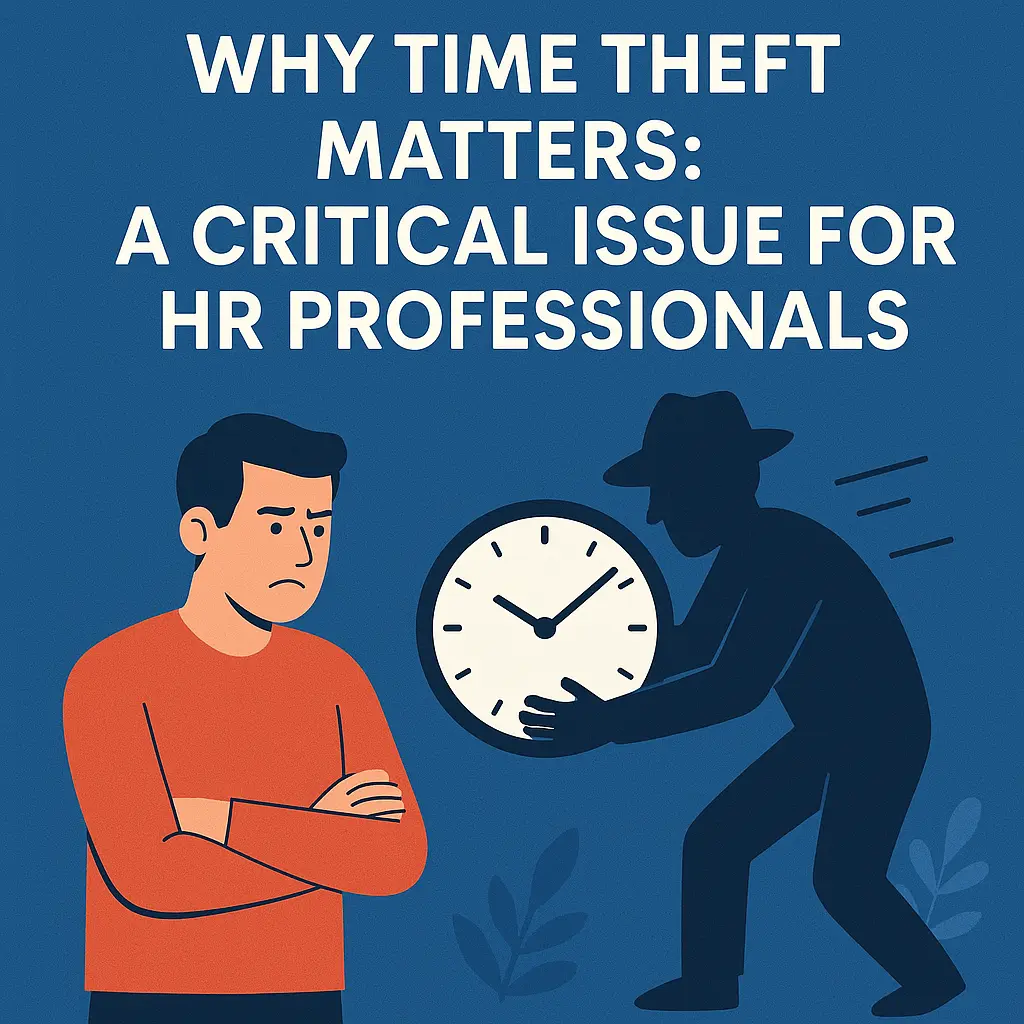Why Time Theft Matters: A Critical Issue for HR Professionals
As stewards of organizational culture, compliance, and employee engagement, HR professionals play a crucial role in addressing time theft—a hidden issue that quietly undermines productivity, fairness, and profitability.
Time theft occurs when employees are compensated for time they did not actually work. This includes actions like logging inaccurate hours, excessive personal activities during work time, buddy punching, or taking longer breaks than allowed. While these behaviors may seem isolated or harmless, they carry serious long-term consequences for any business.
1. Financial and Operational Losses
Even minor time theft—just 10–15 minutes per day—can result in significant financial losses when multiplied across a workforce. For HR, this impacts labor cost forecasting, overtime management, and ultimately the bottom line.
2. Undermines a Culture of Accountability
Unchecked time theft sends the wrong message across the organization. It creates resentment among compliant employees, lowers morale, and erodes trust in leadership and company policies. HR teams must lead the way in reinforcing accountability and setting fair expectations.
3. Legal and Compliance Risks
Accurate time tracking is critical for labor law compliance. Inaccurate or inflated timesheets can result in wage violations, audits, and legal disputes. HR must ensure that timekeeping systems and policies align with legal requirements, especially in remote or hybrid environments.
4. Challenges in Performance and Workforce Planning
Time theft skews data used for evaluating employee performance, productivity, and project planning. For HR professionals involved in workforce analytics and strategic planning, reliable time data is essential to making informed decisions.
HR’s Role in Prevention
Tackling time theft starts with a proactive HR strategy:
- Implement modern time tracking tools that ensure accuracy and transparency.
- Establish clear attendance and time policies, communicated during onboarding and reinforced regularly.
- Foster a culture of trust, where expectations are clear and employees are empowered to manage their time responsibly.
- Conduct regular audits and check-ins to identify patterns and provide support where needed.
Conclusion:
For HR professionals, addressing time theft isn’t just about protecting company time—it’s about protecting company culture, compliance, and credibility. By taking a strategic and people-first approach, HR can reduce time theft and help build a more productive, respectful, and performance-driven workplace.

Still tracking time manually?
Get Agile Worklog – It’s FREE!
- ✅ Effortless Timesheet Management
- ✅ Smart Time Monitoring
- ✅ Boosted Productivity
- ✅ Project & Task Time Tracking
- ✅ Agile & Scrum Timeboxing
- ✅ Leave & Vacation Management
- ✅ Advanced Reporting & Insights
- ✅ Works Online & Offline